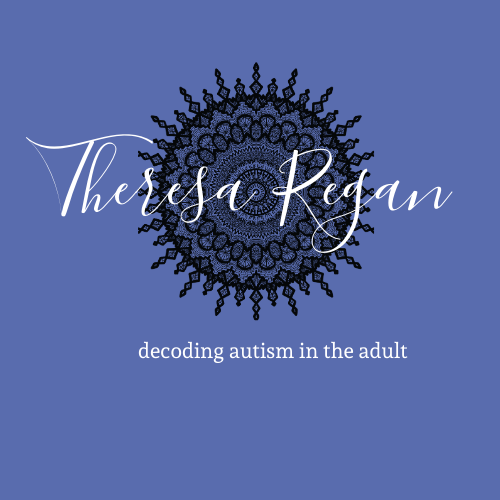Autism and Misdiagnosis: Bipolar and Depression
Description
Join Dr. Regan for the third in this series on autism misdiagnosis. This episode focuses on the misdiagnosis of mood conditions for the autistic individual. Specifically bipolar disorder and depression are reviewed.
Exhaustion in Autism: Balancing Momentum for Daily Activities
Recognizing Dysregulation on the Autism Spectrum: Fight, Flight, Freeze
Dr. Regan's Resources
New Course for Clinicians - Interventions in Autism: Helping Clients Stay Centered, Connect with Others, and Engage in Life
New Course for Clinicians: ASD Differential Diagnoses and Associated Characteristics
Book: Understanding Autism in Adults and Aging Adults, 2nd ed
Audiobook
Book: Understanding Autistic Behaviors
Autism in the Adult website homepage
Website Resources for Clinicians
Read the transcript here:
1
00:00:06,900 --> 00:00:07,470
Hello,
2
00:00:07,470 --> 00:00:09,420
this is Dr Theresa Regan.
3
00:00:09,430 --> 00:00:15,040
I'm glad you're joining us for today's episode of autism in the adult podcast.
4
00:00:15,050 --> 00:00:25,570
I am a neuropsychologist and the director and founder of a diagnostic autism clinic for adolescents through aging adults in central Illinois.
5
00:00:25,580 --> 00:00:26,940
I am an author,
6
00:00:26,940 --> 00:00:30,600
your podcast host, and the parent of a teen on the spectrum.
7
00:00:31,550 --> 00:00:41,780
You are joining us for the third episode in our series on misdiagnosis for those on the spectrum, and, at a very basic level,
8
00:00:41,790 --> 00:01:02,980
the diagnosis of autism is something that helps us distinguish whether the core emotions and behavioral patterns we see for an individual are the result of their neurology or the result of learning, life experiences, or willful behavior...
9
00:01:02,990 --> 00:01:07,290
that "this is a decision for me to respond this way."
10
00:01:08,530 --> 00:01:15,470
This is a really important starting point to understand the basis for the patterns that we experience or express.
11
00:01:15,480 --> 00:01:24,730
And this distinction helps us make good goals and use strategies that are most likely to help us reach the best outcomes for well being.
12
00:01:25,400 --> 00:01:25,820
Now,
13
00:01:25,820 --> 00:01:35,170
of course it would be too simplistic to say that a behavioral pattern could be the result entirely of neurology or experience.
14
00:01:35,180 --> 00:01:39,780
But because we often miss that neurology piece,
15
00:01:39,790 --> 00:01:42,280
I am highlighting it in this episode.
16
00:01:44,100 --> 00:01:44,390
Now,
17
00:01:44,390 --> 00:02:02,060
one of the things that happens for individuals who receive mental health diagnoses is that there's never even a starting point in the diagnostic process where neurology is invited into consideration into the differential.
18
00:02:02,070 --> 00:02:04,980
So the differential process is when we say,
19
00:02:04,990 --> 00:02:05,440
okay,
20
00:02:05,440 --> 00:02:10,040
these features could be present and these five diagnoses.
21
00:02:10,040 --> 00:02:18,090
Now we're going to do our detective work to figure out which diagnosis really matches this individual.
22
00:02:18,100 --> 00:02:21,170
If neurology is not in that process,
23
00:02:21,180 --> 00:02:22,010
of course,
24
00:02:22,010 --> 00:02:23,420
we're not going to find it,
25
00:02:23,430 --> 00:02:24,710
we're not looking for it,
26
00:02:24,710 --> 00:02:26,140
we're not looking at it.
27
00:02:28,140 --> 00:02:35,880
The assumption is that the experience of the individual stems from their life experience from their choices.
28
00:02:35,890 --> 00:02:43,440
Uh and that putting diagnoses into two categories of neurologic versus experiential.
29
00:02:43,450 --> 00:02:46,660
Um although it's not that simple,
30
00:02:46,670 --> 00:02:50,470
it is a starting point for the beginning framework.
31
00:02:50,480 --> 00:02:50,840
So,
32
00:02:50,840 --> 00:02:58,750
I want to raise this idea of neurology being c
More Episodes
Join Dr. Regan for the fifth episode of the Lifespan of a Household series. Today's episode focuses on topics important to autistic individuals who are parenting young children.
Autism in the Adult website
Resources for professionals
Video Visits
Video Courses
Published 10/19/24
Join Dr. Regan for the 4th episode in the Lifespan of a Household series. Today's episode focuses on topics important to the autistic individual who is preparing for parenting.
Autism in the Adult website
Resources for professionals
Video Visits
Video Courses
Published 10/06/24
Published 10/06/24


